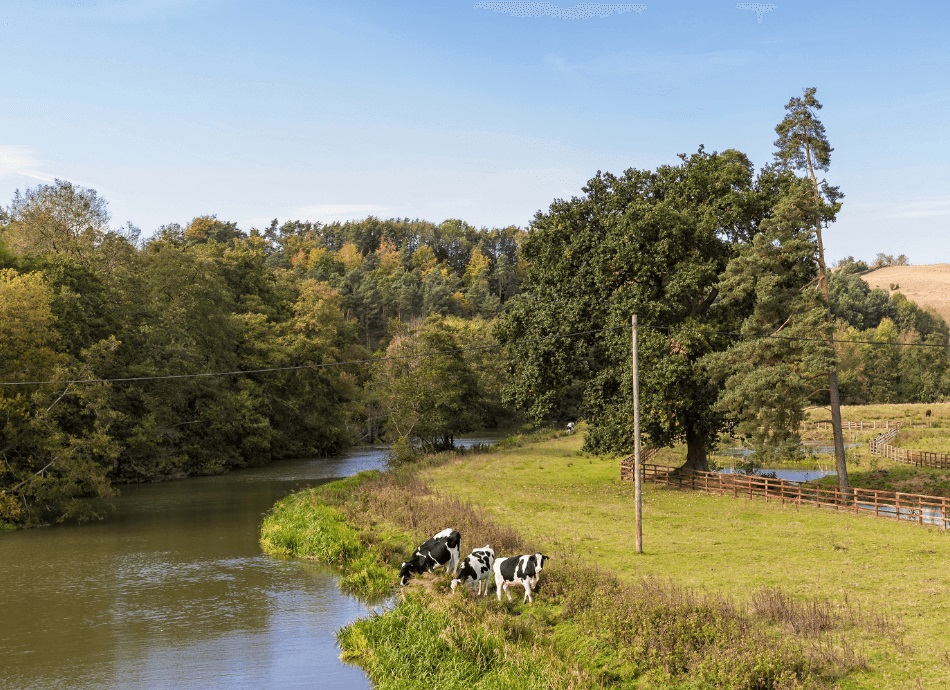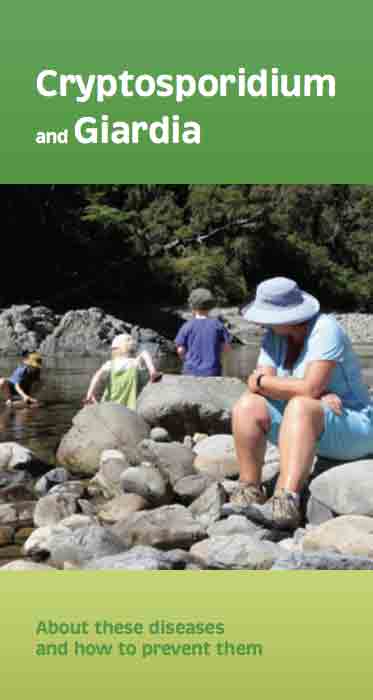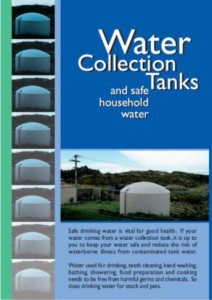Giardia is a parasite found in the gut of infected humans and animals such as cattle, sheep, cats, dogs, rats and possums. It is passed on in the faeces (poo, tūtae) of infected humans and animals. People become infected when they swallow the parasites, usually in contaminated water. Some people can get very sick from giardia.
Giardia can live in the environment for long periods, especially in lakes, rivers, streams and roof water. There is no way of telling by taste, sight or smell if soil, food, water or a surface has giardia parasites.
Low or no data? Visit zero.govt.nz, scroll down the page then click on our logo to return to our site and browse for free.
Giardia
Giardia infection (giardiasis)
Key points about giardia
- Giardia infection (giardiasis) is a form of gastroenteritis (gastro) caused by a gut parasite.
- It's caught when you swallow the parasites passed on in faeces (poo) of infected people and animals, generally in contaminated water.
- Symptoms, including diarrhoea (runny poo) and stomach cramps, usually appear between 7 and 10 days after infection.
- Good hygiene can help stop it spreading.

You get infected when you swallow the parasites. This is commonly by drinking contaminated water or touching your mouth with contaminated hands. Once a person or animal has giardia, they pass on the parasites in their faeces (poo). The parasites can contaminate (make unsafe) soil, food or water, or surfaces such as toys, bathroom taps or doors, and nappy change tables.
Not everyone with giardia gets unwell – it is possible to be a carrier and spread the disease without being ill.
Anyone can become infected with giardia. However, some situations do increase your risk of picking up the infection.
| People at risk of giardia infection | |
|
|
Note: The chance of people getting a giardia infection from dogs or cats is small. The type of giardia that infects humans is usually not the same type that infects dogs and cats.
Giardia infection is a form of gastroenteritis (gastro). The symptoms of giardia infection include:
- runny poo (diarrhoea), this is the most common
- stomach cramps or tummy pain
- feeling sick or being sick (nausea or vomiting)
- gas and bloating.
Giardia symptoms appear between 3 and 25 days (usually 7–10 days) after becoming infected. You can be ill for 3–4 days, then feel better, then the symptoms may come back. If you don’t get treatment, this can continue and you can be infectious for months.
Most cases of gastro do not require special investigations. If your symptoms are severe or ongoing, or your doctor suspects you might have giardia, you may be asked to provide a stool (poo) sample. This can be tested in the laboratory for giardia and other germs.
Giardia is a notifiable disease. This means that if you are found to have giardia, your doctor will notify the Public Health Service. Someone from your local public health team may contact you to find out how you picked up the parasite. This helps them trace the source of infection to reduce the risk of a large outbreak.
Most people with giardia will get better without treatment. If your doctor decides that you do need treatment, you may be prescribed antibiotics such as ornidazole or metronidazole, which kill the parasite in your poo and prevent the spread of the infection.
It is also important to drink plenty of fluids to prevent dehydration, especially if you have diarrhoea or have been sick. Older adults and children are most at risk of dehydration. Read more about dehydration.
Medicines for diarrhoea, such as loperamide and Diastop®, are not routinely recommended. They can make things worse as it can prolong the diarrhoea and there is a risk that you could develop a serious complication, toxic megacolon. Medicines for diarrhoea are also not recommended for use in children under 12 years. Before taking them, check with your doctor whether they are safe for you.
Many people develop a temporary milk intolerance after giardiasis, so you may find it best not to consume milk and lactose-containing foods for approximately one month after treatment.
Stay away from school, early childhood centres or work until 48 hours (2 days) after the symptoms have gone. However, as giardia infection is a notifiable disease (see diagnosis above) you will need to check with your doctor first.
Do not swim in pools (private or public) for at least 2 weeks after your symptoms have gone.
The best way to prevent giardia infection is to practice good hygiene by doing the following:
- Wash your hands frequently and properly after going to the toilet, handling animals, changing nappies, and before preparing food and drinks.
- Clean, sanitize, or disinfect toys and surfaces.
- At the pool, lake, and other swimming areas, do not swallow the water. When tramping or walking in parks, farms and national reserves, check if the streams or rivers are known to have any giardia.
- Avoid drinking unboiled tap water and eating uncooked foods when travelling in countries where the water supply may be unsafe.
Cryptosporidium and giardia(external link) HealthEd, NZ, 2023
Resources
Cryptosporidium and giardia(external link) HealthEd, NZ, 2023
Water collection tanks & safe water(external link) HealthEd, NZ, 2022
References
- Giardia(external link) National Public Health Service – Northern Region
- Parasites - Giardia(external link) Centers for Disease Control and Prevention
Antibiotics guide – giardiasis(external link) BPAC, NZ, 2017
Laboratory investigation of infectious diarrhoea(external link) BPAC, NZ, 2012
Assessment and management of infectious diarrhoea(external link) BPAC, NZ, 2009
Schedule of notifiable diseases(external link), Ministry of Health, NZ
Brochures

Ministry of Health, NZ, 2016

Ministry of Health NZ, 2014
Credits: Healthify editorial team. Healthify is brought to you by Health Navigator Charitable Trust.
Reviewed by: Ministry of Health Public Health Group
Last reviewed:
Page last updated:





